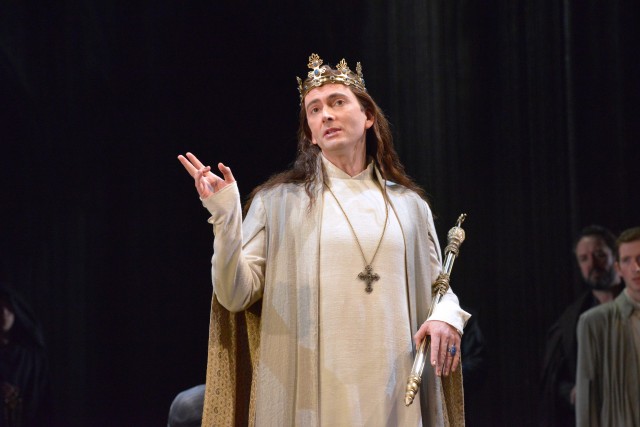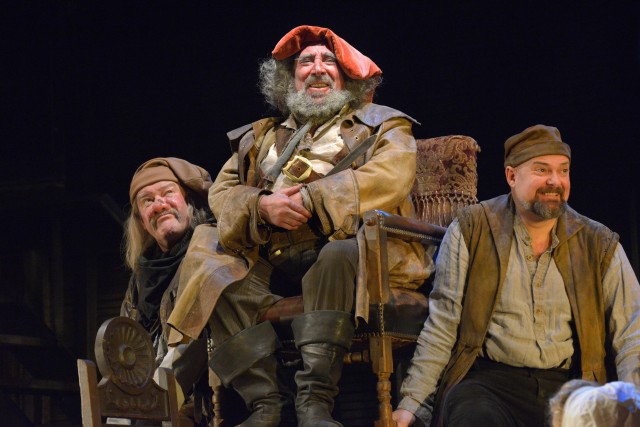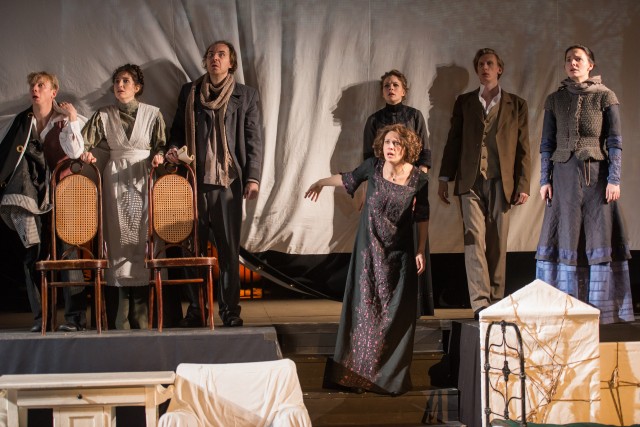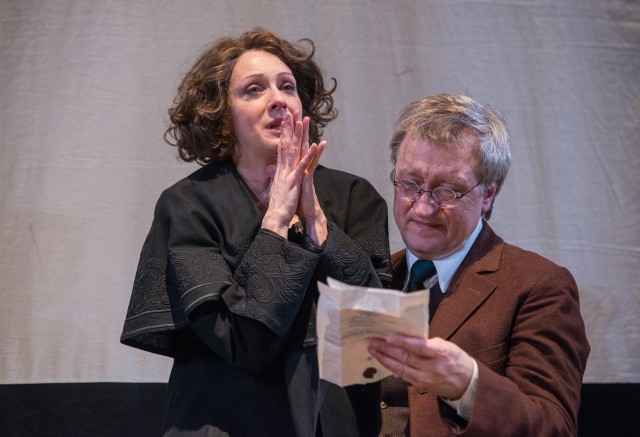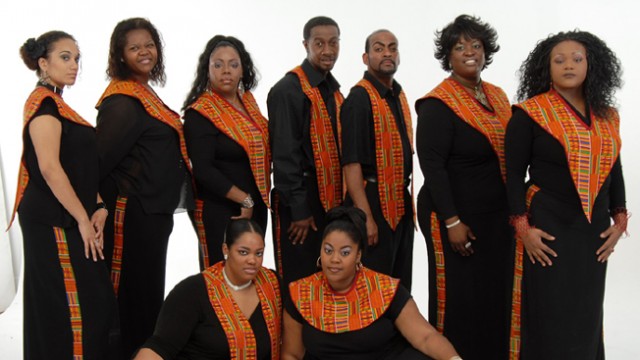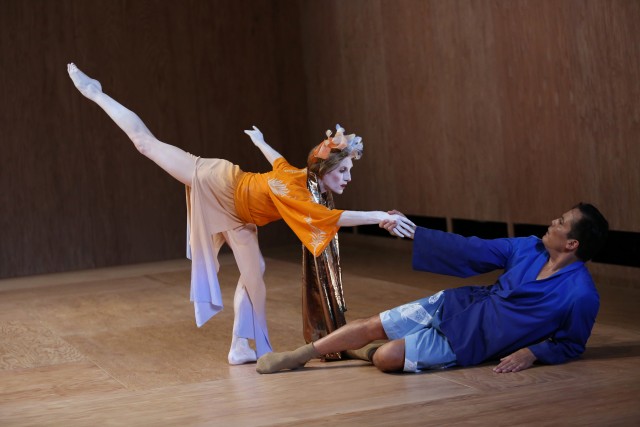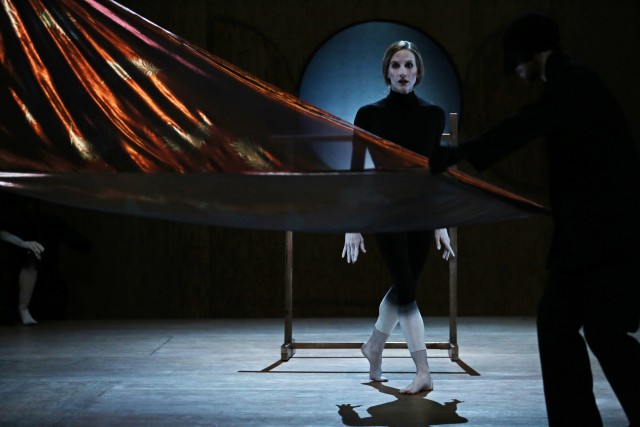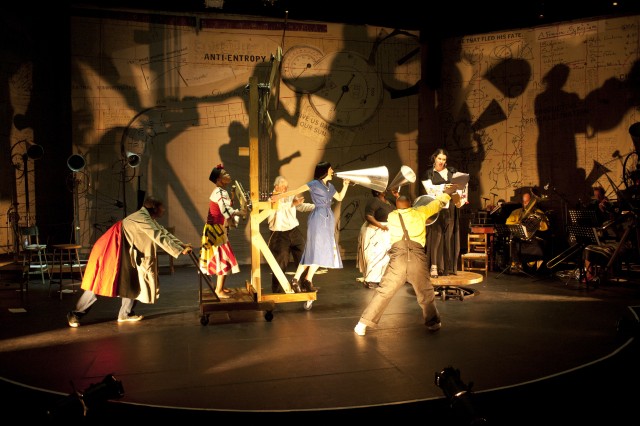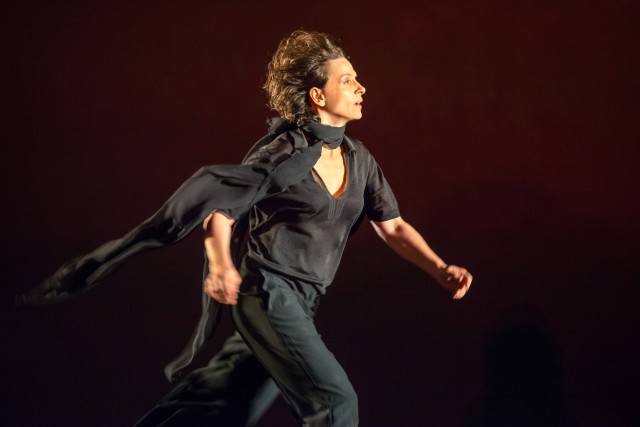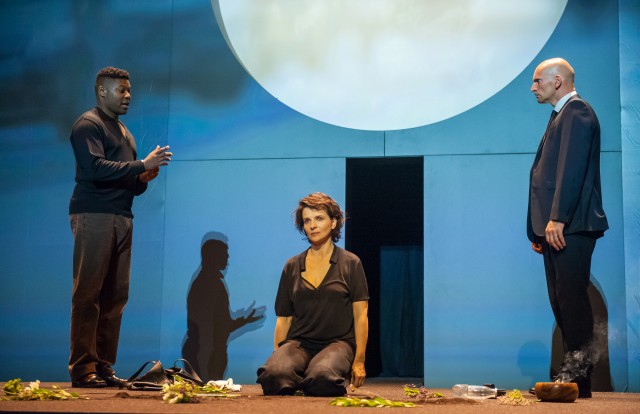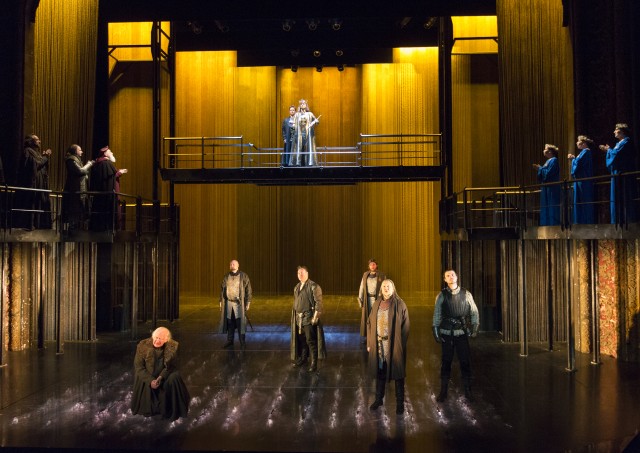
David Tennant wears the crown in RSC production of RICHARD II at BAM (photo by Richard Termine)
Brooklyn Academy of Music
BAM Harvey Theater
651 Fulton St.
Richard II: April 26 & 29
Henry V: April 24 & 28
Cycle continues through May 1, $30-$200
718-636-4100
www.bam.org
Marathons and binge-watching are nothing new to the Royal Shakespeare Company, incorporated in 1875 as the Shakespeare Memorial Theatre. In 2011, the RSC presented five shows at the Park Avenue Armory, part of the Lincoln Center Festival (Julius Caesar, As You Like It, King Lear, Romeo and Juliet, and The Winter’s Tale). The RSC has now taken over the BAM Harvey Theater in Fort Greene, where it is honoring the four hundredth anniversary of the death of the Bard with the four history plays that make up the Henriad, the continuing tales of the House of Lancaster. “King and Country: Shakespeare’s Great Cycle of Kings” begins with Richard II, featuring a fabulous David Tennant in the title role, portraying the dandy king with a bittersweet bisexual abandon and more than a touch of Jesus. The Duke of Gloucester is dead, and Henry Bolingbroke (Jasper Britton), Richard’s cousin, accuses Thomas Mowbray, the Duke of Norfolk (Christopher Middleton), of treason and murder. An almost-duel, exile, return, and revolt ensue, as Henry plots to take back the throne that he believes belongs to him, while Richard becomes obsessed with battling Ireland. Directed, as all four shows are, by Gregory Doran on a spare stage designed by Stephen Brimson Lewis, Richard II, which is told completely in verse, boasts particularly fine performances by Julian Glover as John of Gaunt, Oliver Ford Davies as the Duke of York, and Nicholas Gerard-Martin as Bagot, in addition to Britton, Middleton, and Tennant, the last following a long line of actors playing Richard II onstage (the play has never been made into a film), including John Gielgud, Paul Scofield, Derek Jacobi, Kevin Spacey, Mark Rylance, and Eddie Redmayne. Tennant (Doctor Who, Broadchurch, Jennifer Jones), who played the title character in Doran’s 2008 staging of Hamlet with Patrick Stewart as his father, is utterly charming as the frolicking king, his every step a delight even as everything starts falling apart around him. Above the audience stage right, trumpeters Chris Seddon, Andrew Stone-Fewings, and James Stretton announce scenes, while at stage left sopranos Charlotte Ashley, Helena Raeburn, and Alexandra Saunders sing as a chorus. (The music is by Paul Englishby.) The ending sets up the next two shows, Henry IV, Part I and Henry IV, Part II, with Britton again playing the ascendant ruler.
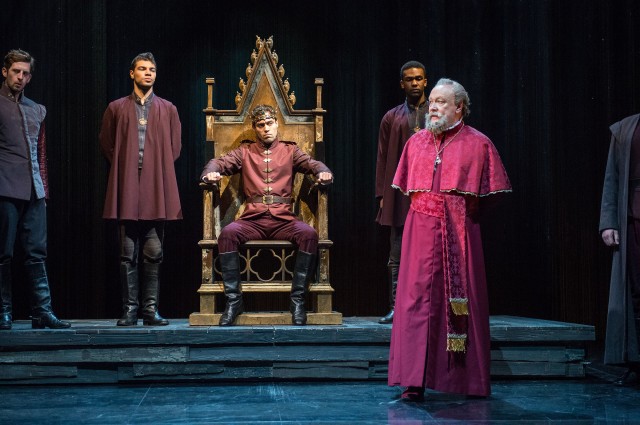
Alex Hassell takes the throne as Henry V in final work in Shakespeare’s Henriad (photo © Stephanie Berger)
The Henriad concludes with Henry V, as Alex Hassell, who played Prince Hal in both parts of Henry IV, does a stern turn as the king, who is determined to take over France, regardless of what the Archbishop of Canterbury (Jim Hooper) and others might say. Meanwhile, the daffy dauphin (Robert Gilbert) essentially dares Henry to bring it on, even as King Charles VI (Simon Thorp) and Queen Isobel (Jane Lapotaire) of France consider other options, as does their daughter, the princess Katherine (Jennifer Kirby). Joining the fray on Henry’s side are Bardolph (Joshua Richards), Nym (Middleton), Pistol (Antony Byrne), and Mistress Quickly (Sarah Parks), who are renewing their purpose in life now that their leader, Sir John Falstaff, has died. It all comes to a head at the epic Battle of Agincourt, staged in marvelous minimalism by Doran. “We few, we happy few, we band of brothers; / For he to-day that sheds his blood with me / Shall be my brother,” Henry declares in the famous St. Crispin’s Day speech. As in Richard II, projections give depth and atmosphere to the surroundings, along with live music, and the acting is impeccable, with Hassell adding his name to a regal roster of Henrys that boasts Ralph Richardson, Laurence Olivier, Richard Burton, Ian Holm, Timothy Dalton, Kenneth Branagh, Tom Hiddleston, and Jude Law. Davies nearly steals the show as the self-aware chorus, a narrator in modern dress who introduces scenes, entering and leaving the drama, watching events unfold while giving such explanations as “Piece out our imperfections with your thoughts; / Into a thousand parts divide on man, / And make imaginary puissance; / Think when we talk of horses, that you see them / Printing their proud hoofs i’ the receiving earth; / For ’tis your thoughts that now must deck our kings, / Carry them here and there; jumping o’er times, / Turning the accomplishment of many years / Into an hour-glass: for the which supply, / Admit me Chorus to this history; / Who prologue-like your humble patience pray, / Gently to hear, kindly to judge, our play.” We can indeed judge the play kindly, bringing the Henriad to a memorable conclusion. All four works have at least two more performances each at BAM, where you can also see the exhibition “King and Country: Treasures from the Folger,” consisting of rare paper artifacts from the Folger Shakespeare Library in Washington, DC.
